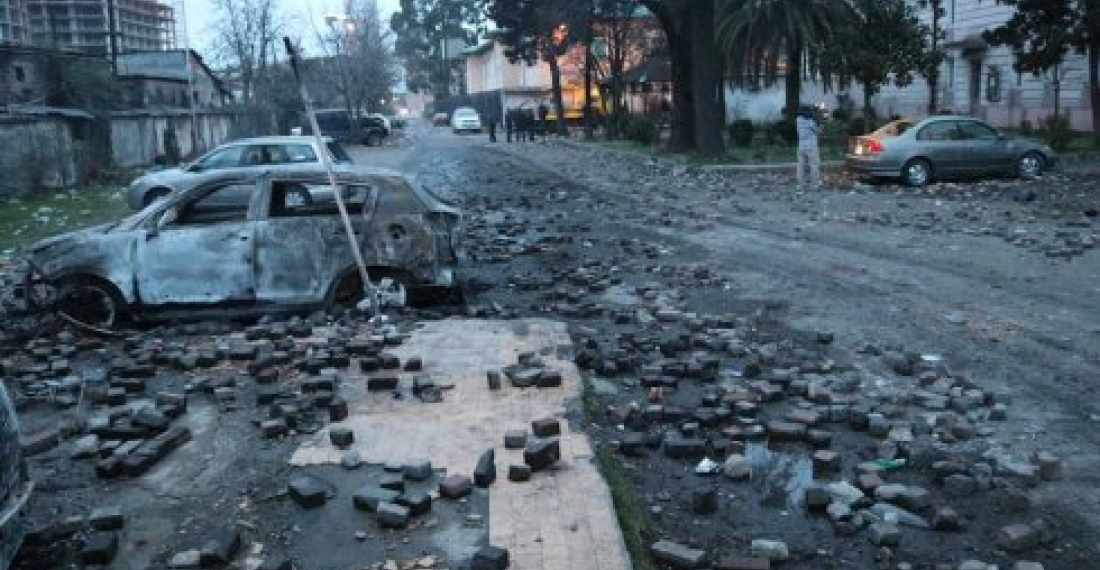This is a commentary prepared by the editorial team of commonspace.eu.
A wave of ugly rioting hit the Georgian Black sea port of Batumi on Saturday night.
Initial reports suggested that the incident started over an argument on a parking ticket, which soon escalated and turned into a riot, during which dozens were injured and property damaged, and in response to which police fired tear gas and arrested dozens. Such incidents have happened before in many countries, particularly were underlying discontent is simmering beneath the surface. But as things calmed down in Batumi during the day, a somewhat more sinister picture started to emerge, suggesting that this was perhaps not a spontaneous outburst at all, but had been planned in advance.
As the Ombudsman of Georgia who conducted a preliminary assessment of the situation concluded, it was impossible for the sequence of events to have happened without prior planning. The congregation of large groups of people close to where the initial incident occurred, and the availability to protestors of Molotov cocktails so soon after the incident happened, suggests that this was a planned provocation.
Georgia has had its fair share of political upheavel in the last three decades, but in recent years the political situation stabilised as democracy consolidated and the rule of law started taking root. These achievements are not yet strong enough to be irreversible. Incidents like the one in Batumi this weekend are therefore of serious concern.
The Georgian government must now conduct a full and independent investigation into events in order to expose the facts. The conduct of the police, at every level of the chain of command must be part of this scrutiny. But if political forces, internal or external, were somehow behind the incidents, then they must also be exposed so that the Georgian people will know who is trying to gamble with their future.
Beyond that the Government of Prime Minister Kvirikashvili needs to assess its work in Adjara, which is an Autonomous Republic within Georgia, and where one would expect the government to show sensitivity to local sensibilities. The imposition of an outside police command over the police force in the territory has been cited as a cause of recent discontent. There are other issues in Adjara that need attention, including respect for the local Georgian Muslim minority who have always been exemplary Georgian patriots as well as citizens, and discontent with how the benefits of the economic progress in the territory in the last decade has been distributed.
Georgia has achieved a lot in the last years, in both the political and economic sectors, and in terms of its standing in the world. That there may be those who do not like to see this is quite obvious. However no one should be allowed to disrupt the life of the Georgian people, and any change needs to happen through the ballot box, not through rioting and violence.
This commentary was prepared by the editorial team of commonspace.eu.
photo: scenes of distruction in Batumi following rioting early on Sunday, 12 March 2017







